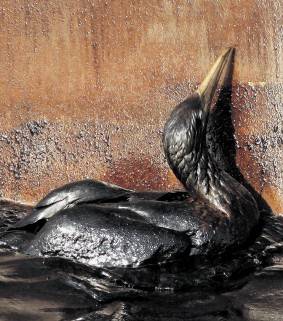
New requirements to ensure operators have resources to pay for well control incidents are now in force.
One of the most significant changes to come out of the various government and industry reviews following the UK Macondo disaster has been the introduction of new guidance from DECC (Department of Energy & Climate Change) in relation to Oil Prevention Emergency Plans (OPEPs).
This applies to all exploration and appraisal wells drilled after January 1, 2013.
The new DECC OPEP guidance means that companies that cannot show adequate resources to address certain potential costs will not get consent to drill. So although it’s called “guidance”, it has a direct impact on companies.
The aim is to ensure that operators have not just thought about how they would respond to a blow-out or similar incident on a well but also how they would pay for it.
OPEPs are the plans which by law every operator of an offshore installation must prepare in advance and implement in the event of an oil pollution incident.
Before drilling, operators must set out assessments of the worst case scenarios which could occur in relation to the well and the steps which would be taken in such scenarios to prevent or mitigate pollution.
In the case of a well blow-out DECC now requires that in appropriate cases the operator plans to deploy a capping device (like the one which eventually controlled the Macondo well) and to drill a relief well to permanently control the well.
The operator must also have plans for dealing with the clean-up of any pollution which does occur. They will now be required as part of their OPEP to estimate the costs of bringing wells under control following an incident, cleaning up pollution and compensating affected third parties, and then to demonstrate that they and their partners have in place the financial resources to meet those costs.
Larger companies will be able to rely on their balance sheet, but if the operator or partner itself doesn’t have an investment grade credit rating it will need to demonstrate that it has insurance, or an undertaking from a parent or affiliate to provide it with the necessary funds.
These new rules represent a significant change in UK requirements for demonstrating financial resources. Prior to this change, the only substantive financial requirement in relation to well control/offshore pollution was for the operator to belong to OPOL, a voluntary oil pollution liability scheme which provides for each operator to have $250million of cover for clean-up and third party claims.
The new DECC guidance doesn’t specify how much cover the department will consider to be adequate in any particular case but to assist companies in complying with these new rules, Oil & Gas UK has issued its own guidelines.
While these are not binding in any way on DECC, it has indicated that it intends to give considerable weight to them. In effect, companies which have followed the OGUK guidelines will, except in exceptional cases, have met the DECC requirements.
It is very difficult accurately to estimate the potential costs of a well control incident.
The OGUK guidelines provide methods of cost estimation for the two cost elements identified by DECC.
For well control, unless there is a specific relief well cost estimate, it is assumed that a relief well will cost twice the estimated cost for drilling the original well plus a fixed sum for the deployment of a capping device.
For clean up and compensation, each well is banded depending on its potential impact on pelagic fishing and fish farming, the length of shoreline which might be affected and the amount of oil which might come ashore.
Based on modelling carried out under OSPRAG, OGUK has estimated clean-up costs for each band.
The well control figure and the banding figure added together determine the amount of resources to be demonstrated by the joint venture.
It is important to note that this assessment of financial responsibility does not constitute any sort of limit on the liability of the joint venture for a pollution incident but instead represents a pragmatic approach to estimating and providing for the potential costs of a very remote contingency.
This will be a material increase in the financial responsibility to be shown by those operating offshore.
So far as pollution clean-up and third party claims are concerned, in most cases the OGUK guidelines suggest the existing OPOL cover level of $250million will be sufficient.
However, for a minority of wells, especially deepwater wells West of Shetland, the amount to be provided will increase substantially – it could be as much as $500million of additional cover.
In addition, companies will also need to show cover for a new category of costs – the costs of capping the well and drilling a relief well – this could easily be $100million or more depending on the nature of the well.
Major companies will use their balance sheet, offer DECC a parent company undertaking (similar to a parent company guarantee) or use their existing insurance so there will be more administration but perhaps not much substantive impact.
However, some smaller companies do not currently have insurance cover of this scale and cannot provide a PCG: they will need to get to grips with the new requirements and probably buy more insurance in future.
It may therefore add costs to some companies’ operating budgets through increased insurance premiums.
Some have suggested that this might discourage exploration at a time when UK exploration needs to grow to ensure sustained production – however, the industry has to be able to pay for incidents (however remote the risk) and therefore the industry has concluded that this cost is just one which must be borne.
Penelope Warne is a partner plus head of energy practice group manager for energy projects & construction at international law firm CMS Cameron McKenna LLP